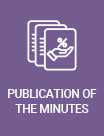Banco de la República increases the benchmark interest rate by 25 basis points
The Board of Directors of Banco de la República at today’s meeting decided to increase the benchmark interest rate by 25 bp to 6.5%. For this decision, the Board mainly took into account the following aspects:
- In February, annual consumer inflation and the average of core inflation measures continued to rise and stood at 7.59% and 6.07%, respectively. Analysts’ inflation expectations to one and two years registered 4.5% and 3.8%, respectively, while those embedded in public debt bonds to 2, 3, and 5 years are between 4.5% and 4.9%.
- The strong increase in food prices as well as nominal depreciation and its partial pass-through to consumer prices largely explain last year's increase in inflation. Although they are considered temporary shocks, the magnitude of the depreciation of the peso and the intensity of El Niño increase the risk of a slower convergence of inflation to the target, due to its direct impact on prices and inflation expectations as well as to the triggering of indexation mechanisms.
- In the United States, the FED maintained its benchmark interest rate, and a slower tightening of monetary policy in that country is now more likely. The price of oil increased above the expectations of the technical staff for the current year. In this environment, risk measures for the country fell, and the peso appreciated vis-à-vis the US dollar, thus reverting part of the deterioration of the external conditions of the economy registered in recent months.
- In the fourth quarter of 2015, the Colombian economy grew 3.3%, a figure higher than expected by the technical staff. Domestic demand weakened less than expected, and exports and imports recorded lower falls than had been estimated. For all 2015, growth posted at 3.1%, with a slower domestic demand. In the same year, the current account deficit was US$ 18,925 m, a figure US$ 668 million lower than the one registered for 2014.
- In February, the Consumer Confidence Index recorded historically low levels again; uncertainty about the persistence of this low level and its impact on household spending remains high. The urban unemployment rate exhibited a significant rebound, especially in Bogotá. In contrast, retail sales (excluding vehicles), cement production and shippings, and industrial production recorded increases that surpass those expected by the technical staff in several cases. With all this, the technical staff maintained its economic growth forecast for 2016 at 2.7% as the most likely figure, within a range between 1.5% and 3.2%.
In summary, a significant gap between expenditure and national income persists. High increases in food prices and the partial pass-through of depreciation to domestic prices continue to exert inflationary pressures. Inflation expectations remain high, and the risk of a slowdown in domestic demand in excess of that which is consistent with the decline in national income continues to be moderated. In order to ensure convergence of inflation to the target in 2017, and to contribute to the reduction of the current account deficit, the Board of Directors decided to continue with the path of 25 bp increases of the benchmark interest rate.
The Board reiterates its commitment to the inflation target and continues to carefully monitor the behavior and projections of economic activity and inflation in the country, as well as that of asset markets and the international situation.
Bogotá














.png)

































